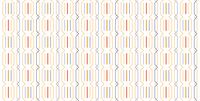In memoriam Charles Simkins
 After completing a BSc Hons (Physics) at the University of the Witwatersrand, he was awarded a Rhodes scholarship, and obtained a MA (Philosophy, Politics and Economics) at Oxford University. He then completed a PhD (Economics) at the University of Kwazulu Natal in Pietermaritzburg. He was the inaugural holder of the Helen Suzman Chair in Political Economy at the University of the Witwatersrand. In her memoirs In No Uncertain Terms, Helen Suzman refers to Charles as the incumbent and mentions that the advertisement for that post specified that “Applicants for the Chair should have a strong record of research, publication, leadership, and should have a sympathy with the ideals expressed by Mrs Helen Suzman.” Subsequently, he was the Vice-President of St Augustine College.
After completing a BSc Hons (Physics) at the University of the Witwatersrand, he was awarded a Rhodes scholarship, and obtained a MA (Philosophy, Politics and Economics) at Oxford University. He then completed a PhD (Economics) at the University of Kwazulu Natal in Pietermaritzburg. He was the inaugural holder of the Helen Suzman Chair in Political Economy at the University of the Witwatersrand. In her memoirs In No Uncertain Terms, Helen Suzman refers to Charles as the incumbent and mentions that the advertisement for that post specified that “Applicants for the Chair should have a strong record of research, publication, leadership, and should have a sympathy with the ideals expressed by Mrs Helen Suzman.” Subsequently, he was the Vice-President of St Augustine College.
Charles had been involved in civil society organisations and initiatives for the greater part of his life. This activism first appeared during his undergraduate days at Wits, when he was elected to the SRC as Treasurer. In the early 1970s, when he was living in Natal, he was extensively involved in helping to create a non-racial trade union movement. This would eventually lead to his being banned for five years under the Suppression of Communism Act. During this time, he was given permission to relocate to the Maritzburg campus where he created the Development Studies Research Group, which would become an important enabler of social and economic research. It was while he was in Maritzburg that he met and subsequently married Rae Gower.
After his banning order was lifted, he moved to Cape Town, where he joined the Economics Department at UCT. In the late 1970s, Charles moved to Johannesburg to join the Urban Foundation, subsequently working at the University of the Witwatersrand and St Augustine College.
Charles joined the Foundation in 2014. He succeeded in building up a research profile which has, over many years, regularly produced widely read (and quoted) research on a broad range of subjects topical to South Africans: this included diverse subjects such as health and land reform, infrastructure problems (including water and electricity) and constitutional issues, especially those surrounding electoral reform. The essential thinking behind this research was to provide an educated South African audience with concise background analyses on issues of general importance, with significantly more substance and rigour than is normally available in the media.
Quite apart from the quality of his work, we will remember Charles as someone who had the rare gift of combining an impressive academic background with a no-nonsense approach to analysing complicated practical issues confronting South African society - all done with a complete absence of pretence and affectation.
We are also very mindful of the great care which Charles had taken in looking after his wife, who suffered from serious illness over many years, and who died only a few days before him.
May they both rest in peace.
The funeral service for Charles will be held at 11h00 on Tuesday 13 December 2022 at St Francis Anglican Church, Tyrone Avenue, Parkview in Johannesburg.

